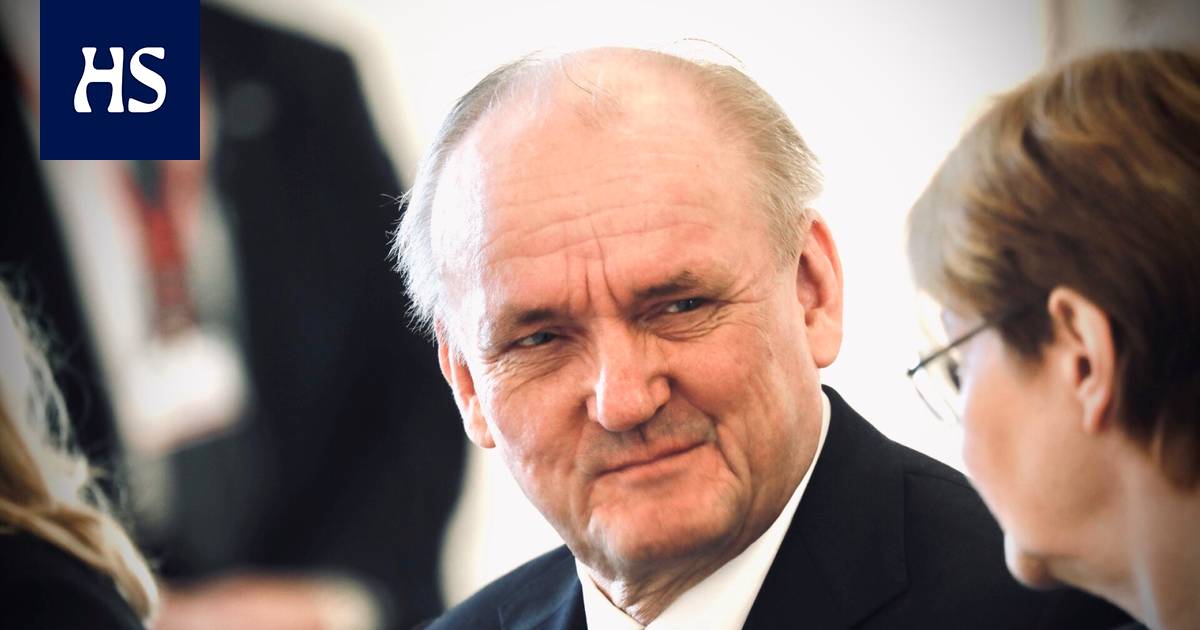Without top training, companies will not succeed at the top level either, Herlin says.
Elevator company Chairman of the Board and one major owner of Sanoma Antti Herlin is concerned about Finnish education policy and the skills of the workforce.
Herlin said in a speech in Stockholm on Wednesday Sauli Niinistö in a business seminar in connection with a state visit, that education is the key to the great upheavals of our time, such as climate change and digitalisation.
Herlin tells HS that the skills of the workforce will soon not be enough to solve the problems associated with upheavals if the level of education is not taken care of.
“I’ve talked to a lot of people in different fields, and everyone has a bit of the same shortage. More could be done if a skilled workforce were available for the sector, ”Herlin tells HS.
Herlin says that it is concerned about, among other things, political views that want to expand and decentralize the university network in Finland. Views have been expressed in particular by central politicians.
According to Herlin, larger units are more internationally attractive, for example.
“Size is important in higher education to keep higher education attractive to international professionals,” he says.
“If our universities do not have the knowledge and know-how at the top of the world, gradually that incompetence will start to freeze the know-how of companies as well, and then they will fall from the top in the fierce international competition.”
At a business seminar the Minister of Economic Affairs was also present Mika Lintilä (middle). He, too, recognizes the intensification of the global competition for skills, but he believes that the size of universities does not affect their attractiveness.
“If you look at the successful universities in the world, many of them are very small. We could have more to develop in terms of what we can find there, but this is really the plot of the Minister of Education. ”
Business leaders from Finland and Sweden met at the Finnish Institute in Stockholm to discuss economic co-operation between the two countries. Also included in the first section were King Charles Gustav and President Sauli Niinistö.
Inflation is rising and interest rates are rising in both Europe and the United States. As a result, there has been a sharp fluctuation in the stock markets, and there are already signs of a declining market.
The prices of raw materials and labor are rising, which naturally also affects Kone’s operations.
Herlin notes that his age group remembers what it’s like to live with inflation. However, that generation is already retiring.
“The challenge is to learn again the ways in which capital commitment has a different meaning than before.”
At a business seminar There was talk of co-operation and innovation between Finland and Sweden, but the truth is that the countries are also competing fiercely for the same investments.
Just this week, for example, the car dealership Laakkonen announced that it would sell all its car business to the Swedish Hedin Mobility Group.
Does it matter if the company is owned in Finland or Sweden?
“Is. Without further ado, ”Herlin says.
“Let’s take the example of the Machine. We have the best elevator product developers in the world in Hyvinkää. They would not be there if Finland were not Kone’s homeland. ”
Minister of Economic Affairs According to Lintilä, the goal is for there to be Finnish companies with headquarters here in Finland. However, according to Lintilä, it is not a decisive factor.
“We always look for the best in the company. What matters is not where it is, but that it has the best possible conditions for success. It is the task of the state to create the conditions for it to succeed. ”
In co-operation between Finland and Sweden, Lintilä has previously proposed to the Swedes the creation of a common industrial strategy, as there are many similar industries, especially in the northern parts of the country.
“When we look at it from that world, we’re pretty much the same area, even though we’re different countries.”
In addition, countries have common interests in the EU, including in the energy and forestry sectors. All in all, the Swedes have woken up in a new way to look at co-operation with the Finns.
“We have received a good boost from cooperation between the countries through this NATO process,” says Lintilä.
Samana in the morning when the king Kaarle Kustaa and President Niinistö gathered in Stockholm to listen to business messages, Finland and Sweden submit NATO applications to NATO Secretary General To Jens Stoltenberg.
According to Herlin, NATO decisions are successful in themselves, but it is unfortunate that they have been driven by war in Europe.
“In that sense, it’s hard to rejoice in the situation.”
Herlin does not believe that joining NATO will have particular economic implications in one direction or another. Instead, non-accession could have had very negative effects.
“Yes, those real effects are precisely on the security side.”
It is known from history books that the business elite has often played a key role in security policy as well.
Has Herlin played any role in the NATO process?
“No,” he replies firmly.
Helsingin Sanomat is part of the Sanoma Group.
#interview #Antti #Herlin #concerned #level #workforce #education #Finland #Gradually #incompetence #begins #freeze #companies #skills









